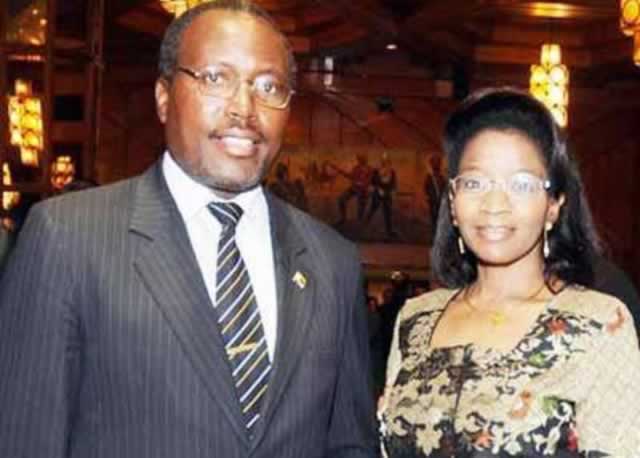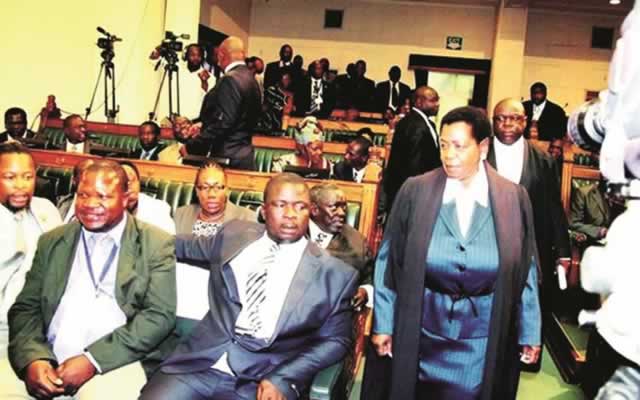Independence benefited Gospel music

Lovemore Chikova Christian Entertainment
The gospel music scene in the early 1980s was dominated by Mechanic Manyeruke, Jordan Chataika, Freedom Sengwayo and the Family Singers fronted by the popular couple Jonathan and Shuvai Wutawunashe.
The advent of independence in 1980 resulted in the opening of floodgates in Christian entertainment.
As Zimbabwe marks 35th independence anniversary on Saturday, gospel music lovers must reflect on that they could have been no gospel music groups
This is because before independence, there were very few gospel music groups which Christians could count on for recorded music.
Groups which used to sing gospel music did not do so in a sustained manner and were mostly traditional church choirs, most of which did not bother to record.
During this time, music was mainly concentrated within the church circles where one could have choirs entertaining congregants at conferences.
But winds of change in gospel music blew with the coming of independence.
After 1980, gospel artistes, like all other performers in different genres, attained the freedom to express their talents freely without some authorities stalking them.
The white minority government was not tolerant to independent views and everything was subjected to interpretation and songs could easily be banned on the basis that they sounded offending.
It could be deadly, for instance, for a gospel music singer to come up with a song about the common Christian belief that Satan oppresses people through sin.
Authorities could easily interpret such lines politically and start accusing the singer of referring to them as Satan because of the oppression the colonial regime exerted on Africans.
As a result of the colonial system, the history of gospel music in Zimbabwe before independence is not well documented.
This was not only because some people shunned singing gospel music because they associated the church with the colonial oppression, but also because no one really bothered to bring talents by Africans to the fore.
Come independence, there was no choice except to come up with fresh talents to entertain people through gospel music.
This led to the rise of several gospel music groups which fiercely competed against those who sang circular music and sometimes becoming more popular.
What is important about gospel music in Zimbabwe is that it has always been centred around central themes such as salvation, triumph, baptism and atonement of sins.
Some of the themes in the local gospel music touch on social issues, encouraging people to become good citizens and help develop the nation.
At one time gospel music in Zimbabwe became so popular that it dominated the airwaves and singers in the genre won various awards ahead of those of other genres.
It was really a very difficult time for groups which “pioneered” post-independence gospel music in Zimbabwe.
They had to first deal with the mentality of most recording companies’ officials who held the perception that the type of music had no market in the country.
The singers had also to deal with the reality that their music had not been popular among Zimbabweans because they were seeing very little of it before independence.
Confronted with such a situation, the gospel singers had to up their game and ensure that they released good music to compete with already existing recordings.
The gospel music scene in the early 1980s was dominated by Mechanic Manyeruke, Jordan Chataika, Freedom
Sengwayo and the Family Singers fronted by the popular couple Jonathan and Shuvai Wutawunashe.
These four groups stood the heat in a bid to make the genre popular.
Manyeruke and the Wutawunashe couple are still around, while Chataika and Sengwayo have since passed on.
Credit should go to these early gospel musicians who sweated to ensure that those who came later had a ready market for the genre.
It was not financially rewarding for these musicians to persevere, but they did it for generations to come and thanks to their efforts, gospel music is now popular in the country.
Freedom Sengwayo
Sengwayo was a big name in the local musical scene during his time.
His style was so distinct and brought freshness in Zimbabwean music and the beauty of it was that he used to sing in different languages.
As a result, Sengwayo’s songs were universally accepted by all kinds of listeners in Zimbabwe.
In a bid to earn something from his mega efforts, Sengwayo relocated to South Africa where he made a little fortune out of music before he died.
Some of Sengwayo’s popular songs included “Ukufa Kwabangcwele”, “Freedom”, “I’m gonna Change” and “Ngelinye Ilanga”.
Mechanic Manyeruke
Manyeruke is not only accepted in the gospel music circles alone as a musical guru, his works have placed him as one of the top musicians to come up of Zimbabwe.
Starting with his banjo as a “one man band” singer in the 1970s, he went all out to record his work after independence.
Hailing from Shurugwi, Manyeruke came to Harare and formed his first group called Gospel Singers together with Godfrey Chiketa and Lovejoy Mbirimi.
The group, which was operating under the Salvation Army, later disbanded and Manyeruke then formed the Puritans, which went on to dazzle gospel music lovers for decades.
Manyeruke released his first album “Zakeyo” in 1984 while being backed his group.
Speaking in one of his many interviews, Manyeruke reminded people that recording his first album was a not a stroll in the park.
He said the album only came into being after visiting several recording companies who turned him away on the pretext that his type of music would not sell.
Although he has slowed down, Manyeruke is still in the game and being invited to play at a number of shows.
Some of his popular recordings include “Joseph and Potiphar’s Wife”, “Moses Murenje”, “Rudo serwaPeter”, “Madhimoni” and “Makoroto”.
Jordan Chataika
Chataika started singing in the 1960s and later turned to gospel when he teamed up with his sisters Edna and Molly as his backing vocalists.
In 1961, he recorded his first seven single “Vana VeIsrael”.
Chataika passed away in 1990 after releasing popular songs such as “Pakudenga Kuna Baba”, “Kana Manzwa Izwi Rangu”, “Garai Neni” and “Apo Jesu Anouya”.
Family Singers
Jonathan and Shuvai Wutawunashe founded the Family Singers in 1981 and the group rose to become one of the best gospel outfits in the country.
Members of the group were all worshippers at the Family of God Church founded by Jonathan’s brother Reverend Andrew Wutawunashe.
The Family Singers also produced popular drummers Clive “Bobby” Mutyasira, who at one time played with Oliver Mtukudzi and Blessing “Blade” Chimanga, who has since gone international.
The group produced albums such as “Shine On”, “African Praise”, “Nditorei”, “Nguva YeAfrica”, “Prodigal Son”, “Tadzoka”, “Ndasukwa”, “The Preacher” and “Minamato” and had number of popular singles.








Comments